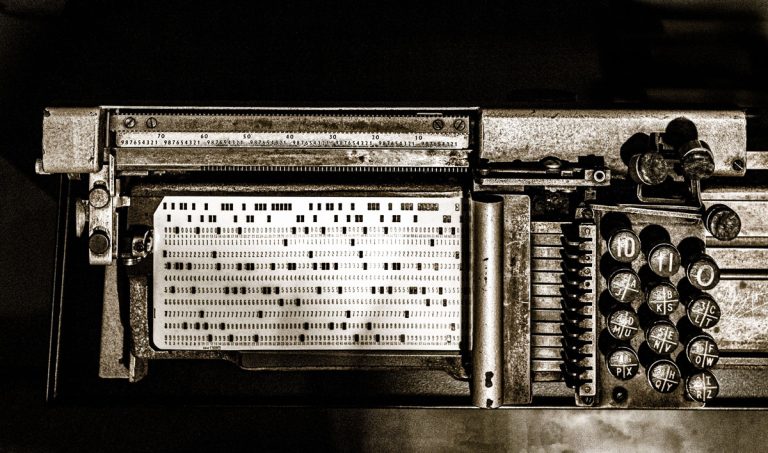Design a better calendar: new zero year needed
It’s two thousand years since the birth of Christ; the zero year. I think it’s time to free ourselves from the Christian calendar.
To be clear, we didn’t make the calendar. I sure as heck didn’t. I woke up in an era of significant Christian colonization and the calendar has, well, gone viral. And by gone viral, I mean that it’s like a kind of deadly airborne influenza with imperial force. The Christian calendar has more or less won; not because it’s right or just, but because it’s been the mightiest. And the luckiest.
But I’m not Christian. Most earthlings aren’t.
While it’s true that Jesus’s birth is probably a historical fact, the fact of his birth is usually held together with a variety of other Christian claims, many of which are, ahem, false.
Many Christians believe that the birth of their prophet ought to be the zero year. And many Christians have never really thought about it.
But I’m not Christian. And I don’t want a Christian designed calendar. And I doubt I’m alone.
Some arbitrariness is okay
Now, to some degree, any calendar we design will be arbitrary. Time, like velocity or frames of reference, is relative.1 However, there are degrees of arbitrariness that I can live with.
If you’re Christian and you’re sort of thinking to yourself that the existing calendar is just fine, ask yourself what Jesus would do. He wouldn’t care about the calendar. Only a jealous colonial overlord would care about keeping a particular calendar tied to their ideology.
Well, I’m not a jealous colonial overlord, why do I care about the calendar?
Because, imperialism
I don’t want to impose a particular calendar that suits my tastes over everyone else’s. I don’t even claim to really know what the calendar ought to be. I do have ideas, sure.
I think, however, that humans should get together and design a calendar as a group. We should strike a convention. There’s no rush. Let’s take time to really consider this. Let’s make it a consensus project. Seriously.
I’m also open to the notion that we don’t need a single calendar. We’re all sophisticated enough to translate between different systems. If you want Christ at the centre of your calendar, go ahead. If you want Krishna at the centre of your calendar, okay. If you want Muhammad, or Moses or Gautama Buddha, or the Flying Spaghetti Monster at the centre of your calender, fine. But I don’t. And it’s cool if we have a standard.
Because, objectivity
I care about objectivity. This is one reason why we should jettison the Christian calendar. It’s too particular. It’s too bound up in a single perspective. And objectivity is really cool.
This is how it works. I say left and right. And so do you. But if we’re facing different directions then we need to translate between each other’s frame of reference. OR. We say North or South. OR. We say toward the sun, or toward the beach.
Frames of reference that include more individual’s perspectives, are more objective.2 Quick note: this is not the only kind of objectivity. Also, there’s no absolute objectivity, in this sense.
But we don’t need a calendar with absolute objectivity, even if that was possible. We just need a calendar that’s not based on some believer’s particular cosmological narrative.
Because, arbitrariness is a kind of objectivity
I would rather have a completely arbitrary calendar than one tied to a particular religion. Take the metric metre, for example. Totally arbitrary. It’s not the length of King Herod’s arm. It’s not a reference to the undying love of someone’s great white father in heaven. That’s one of its virtues.
I contend that the human calendar should either be part of a story shared by all humans, or a calendar connected to a story shared by none. Or, at the very least, not objected to by anyone.

This cave painting from Altamira is many thousands of years old.3
Probably should be simple and human usable
One idea I had was to base a new calendar for humans on a real geological event in Earth history. So, for example, we could say that the end of the last ice age is the zero year. Seems important. Some have suggested that it’s highly relevant for human civilizations. It’s just one idea and it has a few down sides.
For example, it was roughly 12000 years ago. So that’s a lot of numbers. Actually, it’s fewer than I thought. It’s really not much harder to say it’s the year 12000, than to say it’s 2014. We could simple ask geologist to form a consensus as to how many years ago the ice age ended. They, of course, would give us a number with error bars. And then we would just arbitrarily pick a year in there, and voila. A perfectly good zero year.
How cool would it be if it was now the year 12064. Awesome! It’s simpler and easier than saying it’s the year 299,000,064. This is how long since the the continents broke up from their original single mass; also an important geological event for Earth and the humans that inhabit it, but perhaps a little too long ago. You get the idea.
Some ideas for a good zero year
Here’s a few ideas that I think are reasonable contenders I would consider putting forward to form the zero year for a more enlightened inclusive calendar:
- the end of the last ice age,
- the year of creation of the oldest human drawings, whatever they are, ever discovered (cool to imagine, that the calendar could change!),
- the year of creation of the oldest human artifact, whatever it is, ever discovered,
- the year of the invention of the internet,
- the year of the last perihelion of the so-called Halley’s comet.
These are all looking backward for the zero year. But we don’t have to do that. We can also look ahead to the zero year. Here’s a few more ideas:
- the year the human population stops increasing
- the year a human colony becomes self-sufficient on another planet or moon or outpost (ever?)
- the year that the fifteen billionth human is born (or dies)
- the year my nephew’s baby is born (just kidding!)
Closing remarks
You can probably tell that even though I’m making an effort to come up with ideas for a more objective, less ideological calendar, all of my ideas are still very much embedded in my point of view. You can see, so to speak, me and my interests in my suggestions. I’m into science. And art. I’m an atheist. So on and so forth.
That’s not necessarily a bad thing, mind you, and I don’t think that a calendar for humans needs to be devoid of a human perspective. A calendar is after all a kind of map, or model, of time.
And a map that’s good for humans will always have human interests and human values built into it. There’s no getting around it. And that’s why I care about this issue.
- Don’t worry, I know some physics. ↩
- Interested in this? Check out my thesis on models and truth. ↩
- The creation date of this painting means more to me than the birth of Christ. ↩
Don’t miss a dispatch!






